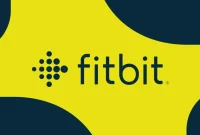Microsoft Copilot upgrades are poised to take center stage at the upcoming Microsoft Build 2025 conference. As the tech giant prepares to unveil deeper AI integrations, these enhancements promise to revolutionize how users interact with Microsoft’s suite of software. From autonomous task execution on Windows to advanced AI models, the new Copilot features aim to boost productivity and streamline workflows for both consumers and enterprises.
Microsoft is gearing up to announce significant upgrades to its Copilot generative AI across multiple platforms. One of the most anticipated features is the introduction of “agentic” functionality on Windows. This will allow Copilot to autonomously perform basic PC tasks, enhancing user convenience and efficiency. An Action button within the Windows Copilot client will enable users to trigger everyday tasks with ease.
Additionally, Microsoft is testing alternative AI models from leading AI developers such as xAI, Meta, Anthropic, and DeepSeek. This move comes amid evolving dynamics with OpenAI, whose technology currently powers much of Copilot. Microsoft has also developed its own family of AI models called MAI, which are competitive with OpenAI’s offerings and may be made available via API.
On the productivity front, Microsoft 365 Copilot continues to evolve with new features like Copilot Chat, which now includes pay-as-you-go agents for commercial customers. These agents help users find optimal meeting times, rewrite emails for tone and style, and clean data in Excel effortlessly. Copilot’s integration with Outlook, Word, PowerPoint, and SharePoint is becoming more seamless, offering tools such as Narrative Builder for presentations and AI-powered insights for managing office spaces.
Microsoft introduced Copilot as an AI assistant integrated into its productivity software to help users create content, analyze data, and automate routine tasks. Since its initial launch, Copilot has been embedded in Microsoft Teams, Office 365, and Windows, among other products. Last year’s Build conference saw the debut of Copilot in Teams and AI-powered PCs, setting the stage for continuous innovation.
The company’s recent price increases for Windows 365, Office 365, and Microsoft 365 hint at the addition of new AI-driven capabilities to justify the cost. The Build 2025 event is expected to showcase these advancements, reflecting Microsoft’s commitment to embedding AI deeply into its ecosystem.
The upcoming Microsoft Copilot upgrades will have far-reaching implications for users and businesses alike. By enabling Copilot to autonomously handle PC tasks, Microsoft is pushing the boundaries of AI assistance, potentially reducing the time and effort required for daily computing activities.
The introduction of alternative AI models and Microsoft’s own MAI family signals a strategic diversification in AI technology sources, which could lead to more robust, customizable, and secure AI services. For enterprises, enhanced Copilot features mean improved workflow automation, better data insights, and more effective collaboration tools.
Moreover, the integration of advanced AI capabilities such as deep research, podcast-style audio generation, and vision-based analysis will empower users to tackle complex projects with greater ease. These upgrades also position Microsoft competitively against other AI platforms like ChatGPT and Claude, ensuring it remains a leader in AI-powered productivity solutions.
Microsoft Copilot upgrades at Build 2025 are set to redefine productivity by introducing smarter, more autonomous AI features across Windows and Microsoft 365 applications. These enhancements will not only streamline everyday tasks but also provide powerful tools for data analysis, content creation, and collaboration. As Microsoft continues to innovate, Copilot’s evolving capabilities will play a crucial role in shaping the future of work and digital interaction.




